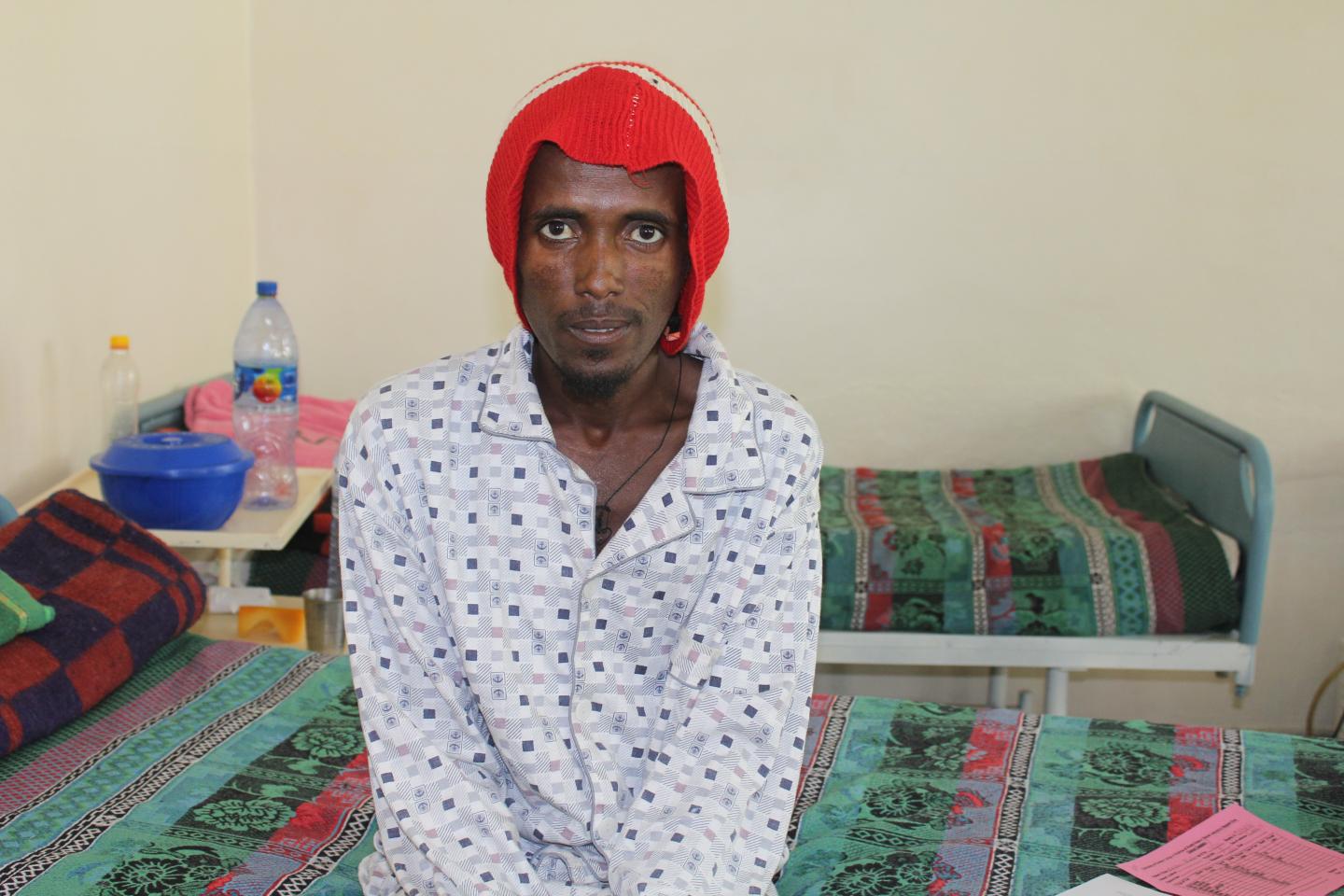A PLOS Neglected Tropical Diseases press release

Credit: DNDi/L. Otieno, 2019
Coinfection with visceral leishmaniasis (VL) and human immunodeficiency virus (HIV) has been observed in at least 35 countries on four continents and requires special case management. Currently, the World Health Organization recommends AmBisome monotherapy for treatment. Now, researchers reporting in PLOS Neglected Tropical Diseases have showed that a combination therapy of AmBisome and miltefosine is more effective.
HIV affects VL by increasing its incidence, altering its symptoms and severity, and worsening treatment outcomes and relapse rates. While affective antiretroviral therapies have lowered the incidence of VL in HIV, it still remains a prevalent co-infection in some places. In Northwest Ethiopia, HIV rates among VL patients range from 20 to 40%. Studies have shown that 30 mg/kg AmBisome is effective in 43-70% of HIV co-infected patients, and also carries toxicity and an increased risk of death.
In the new work, Séverine Blesson, of the Drugs for Neglected Diseases Initiative in Switzerland, and colleagues began a compassionate use clinical trial regimen combining AmBiosome and miltefosine in a treatment center in Northwest Ethiopia. Efficacy was measured by measuring parasite clearance at 29 days and 58 days. Out of 536 VL patients, 81 were HIV positive and 59 were enrolled in the trial. 19 of those received the standard of care, with AmBiosome monotherapy, and 39 received the combination therapy.
After 29 days, the adjusted efficacy was 50% for AmBisome along and 67% for the combination therapy. At day 58, is was 55% for the monotherapy and 88% for the combination. Additionally, no safety concerns about the combination therapy were identified.
“The results of this randomized trial strongly support a change in the treatment recommendations for HIV-VL co-infected patients,” the researchers say. But, they also caution, “these results, even if encouraging, cannot be extrapolated to other settings without reservation.”
###
Peer-reviewed / Observational Study / People
In your coverage please use this URL to provide access to the freely available paper: http://journals.
Citation: Diro E, Blesson S, Edwards T, Ritmeijer K, Fikre H, et al. (2019) A randomized trial of AmBisome monotherapy and AmBisome and miltefosine combination to treat visceral leishmaniasis in HIV co-infected patients in Ethiopia. PLOS Neglected Tropical Diseases 13(1): e0006988. https:/
Funding: Drugs for Neglected Diseases initiative has received funding from the European Union Seventh Framework Programme under grant agreement n°305178, the Dutch Ministry of Foreign Affairs (DGIS), the Netherlands/a> under grant agreement PDP15CH21; the Federal Ministry of Education and Research (BMBF through KfW), Germany under grant agreement signed on December 12th 2011; Médecins Sans Frontières/Doctors without Borders, International under grant agreement signed on April 10th 2014; the Medicor Foundation, Liechtenstein under grant agreement FL-0001.526.038-3; UK aid, UK under grant agreement n°204075-101; the Swiss Agency for Development and Cooperation (SDC), Switzerland under grant agreement n°81017718. The funders had no role in study design, data collection and analysis, decision to publish, or preparation of the manuscript.
Competing Interests: The authors have declared no competing interests exist.
Media Contact
Avren Keating
[email protected]




